A good pair of jeans is a classic wardrobe staple. The problem is denim comes with its fair share of eco issues. Over 2 billion pairs of jeans are produced a year.
With it, the process of growing cotton and using dyes guzzles an estimated 20,000 litres of water.
Not to mention the ethics of the people involved in making these clothes – or the environmental impact of the dyes.
Happily, the fashion world is waking up. (Slowly, admittedly.)
There are some excellent sustainable denim brands that fashion eds are whispering about.
Brands that use organic and recycled cotton like non. Or brands that let you lease a pair of jeans like MUD Jeans.
Even some fast-fashion brands are getting it.
Asos, for instance, has an ethical denim collection and has committed to reaching 100% sustainable cotton across the board by 2025. But that’s not now. Now, you’ll need to do some digging.
Lucky for you we’ve done the research. Here’s our guide to the best ethical jeans for every shape.
Quick links to pebble’s fave eco-friendly jeans
Is it possible to find good ethical jeans for every body shape?
It is a truth universally acknowledged that a single person in possession of a good fortune must be in search of good jeans.
And I swear to God, good jeans – you know: the pair that complete you; the ones that really get you; The Ones, if you will – are harder to find than a good wife/husband/partner/therapist/other.
The rejection from the wrong denim? Oh, it’s cruel. You thought they looked so nice on the shelf. So your type. So understanding.
Then just when you thought they might open up, let you in… No. Not even past the thigh. Most jeans, it turns out, are body fascists. Draw your own parallels.
Anyway, my point is that buying denim is hard – nay, emotionally exhausting – enough, without having to worry about the environmental impact of your choices.
To keep the simile going, finding out that a pair of jeans you THOUGHT were perfect but actually involve toxic pesticides, gargantuan water waste, trade injustice and exploitation is like finding out that one-night-stand who you THOUGHT was perfect actually means now you need to pay a visit to the NHS walk-in clinic.
But I digress. Scroll down to discover our favourite sustainable denim brands.
7 Best Ethical Denim Brands For Every Shape
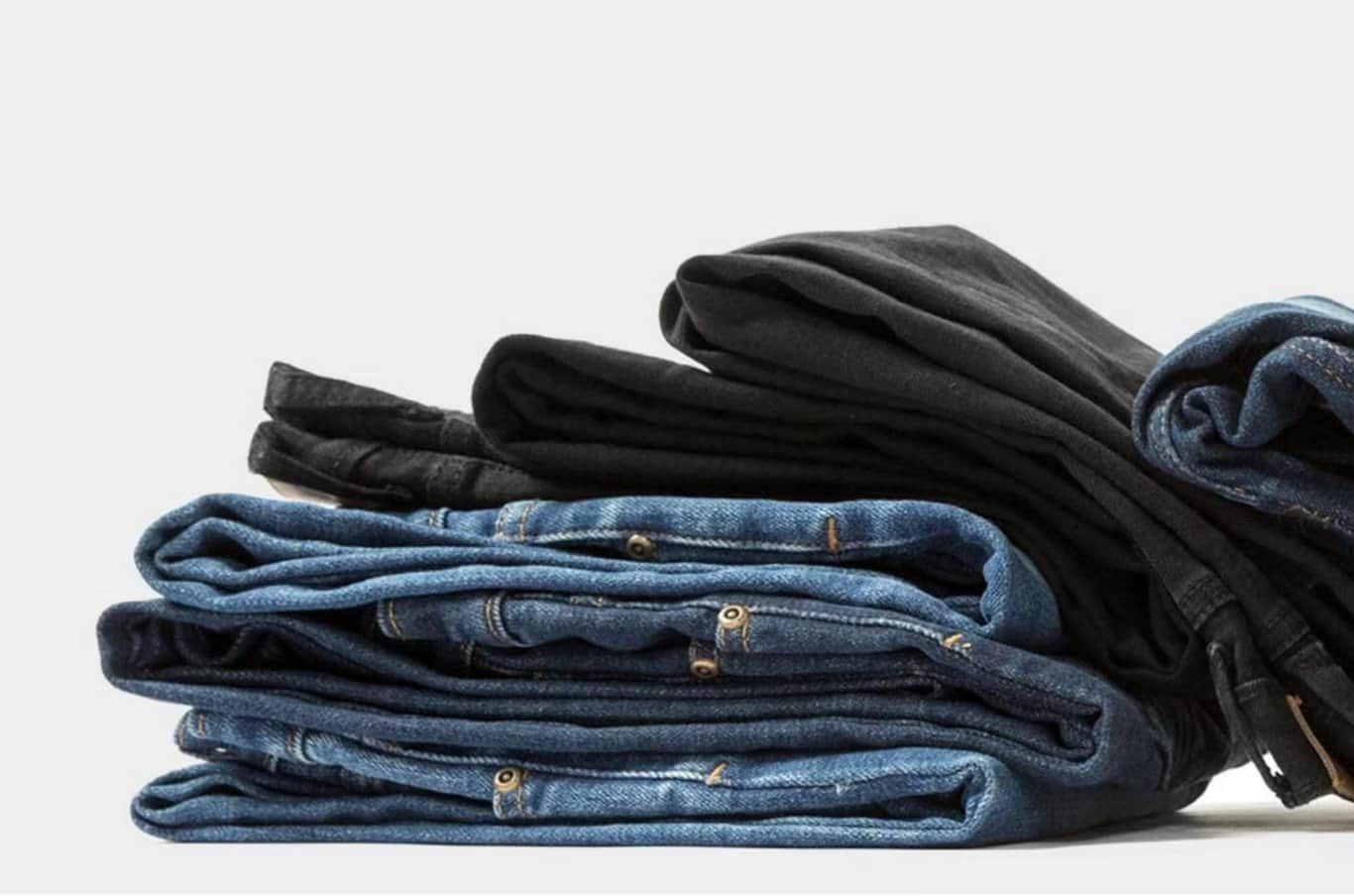
1. Outland Denim
Start with Outland Denim – which offers ethical employment and training to women rescued from human trafficking and exploitation in Cambodia.
They’re not cheap at £160 a go, but they come in wear-forever shapes – our pick is the pre-rock’n’rolled Isabels with on-trend high-rise.
Click HERE for why normal, high street denim is so bad for the planet.
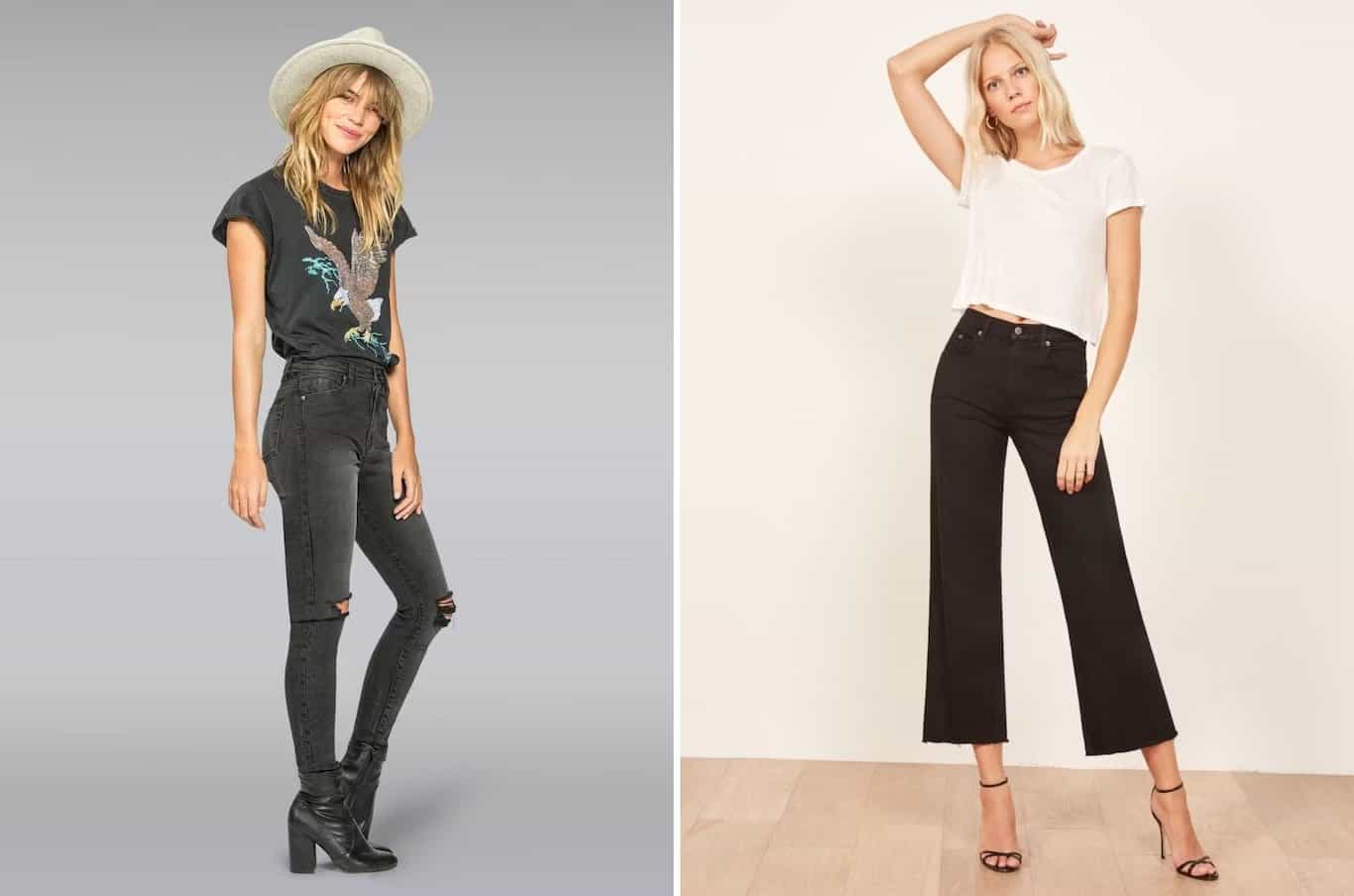
2. One
For fans of selvedge denim (that’s fancy fashion speak for the rigid stuff, which looks fabulous but makes you think twice about that massive lunch you were planning), we present One.
This is the kind of brand editors speak about in terms of ‘denim for best’.
This is serious stuff.
Bragging not only that they’ve ‘created the most sustainable luxury denim ever made’, but backing it up with natural, biodegradable organic fibres and recycled materials down to every last button, rivet, stitch and label.
And my God – the core collection!
It’s every pair of jeans you will ever need, ever – namely skinny cigarette jeans (£135), cropped flares (£120), elongated flares (£120) and slim boyfriend jeans (£145).
And they’re so good… the best relationship of your life, in ethical denim form.
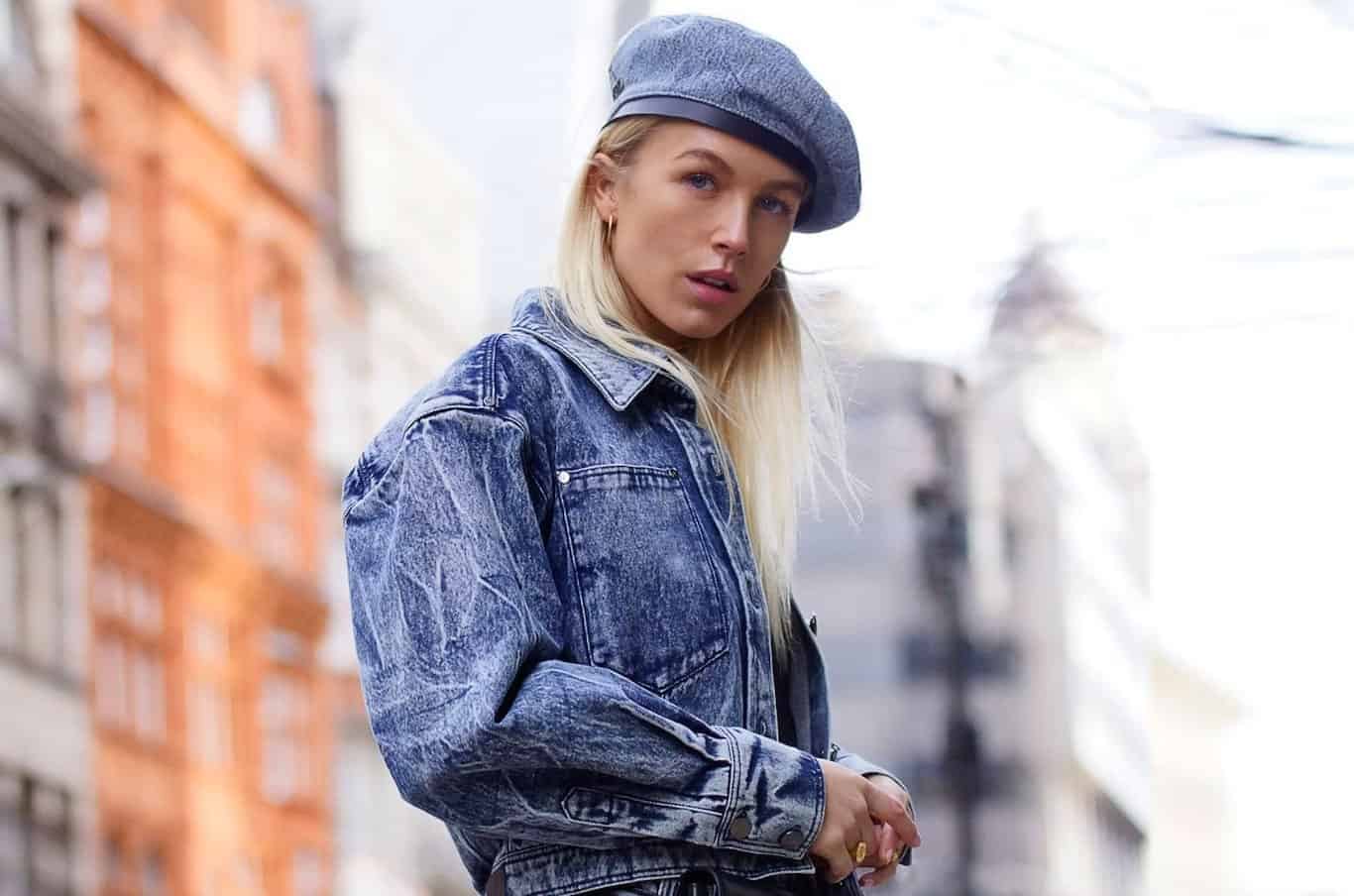
3. Reformation
To Los Angeles: where Reformation have their sustainable denim factory, with practices so transparent, you can go and meet their workers (if you happen to be in LA on the first Friday of every month, like).
These guys also produce a quarterly sustainability report to track their efforts in minimising waste, water, and energy footprints.
It’s the fashion brand equivalent of the guy who lays out his entire romantic history on the first date. In a non-creepy way.
Try the Stretch Flood Jean (£90), a modern, cropped style that works leg-lengthening wonders with heels.
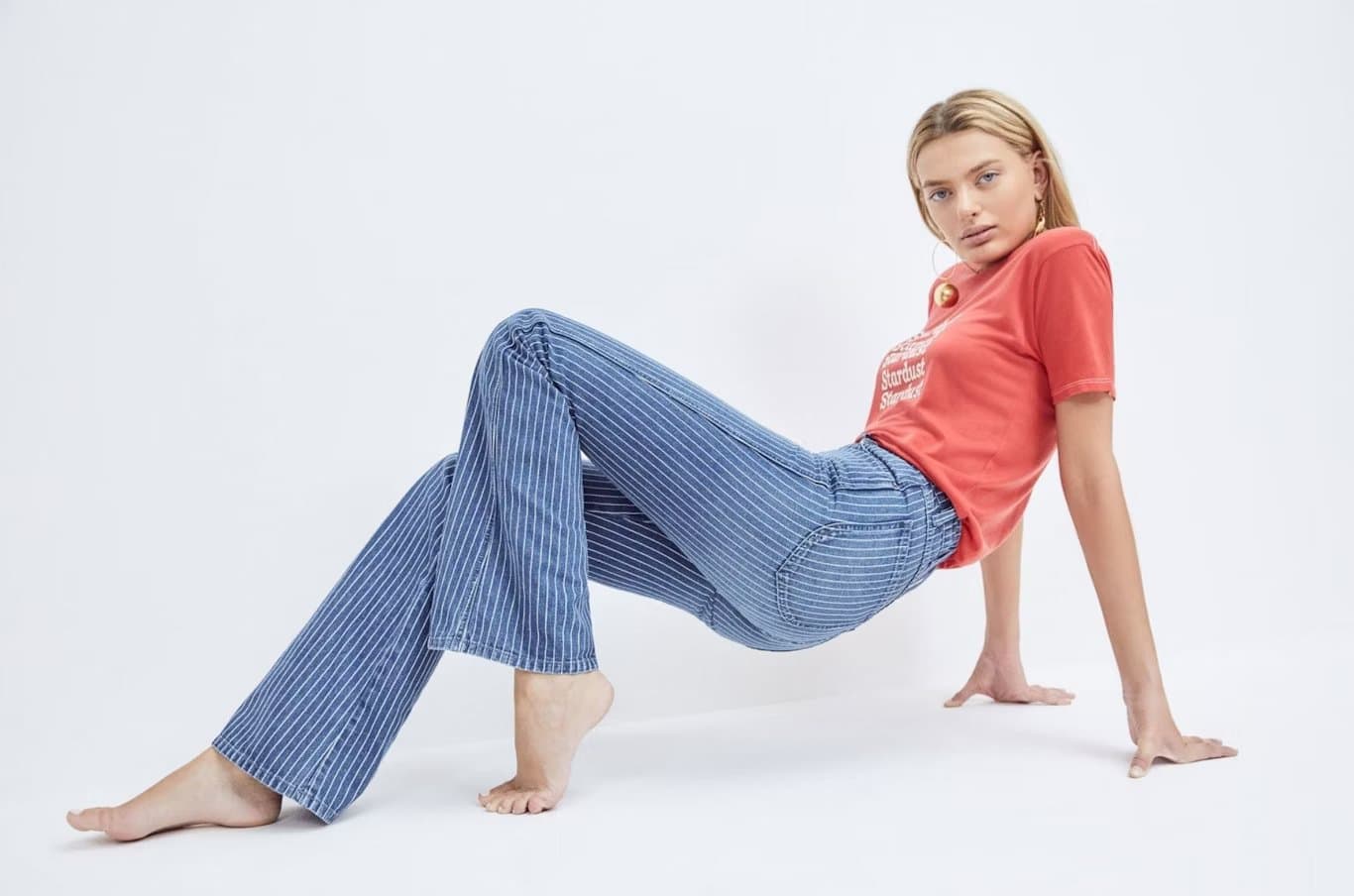
4. MUD Jeans
Commitment-phobes will appreciate MUD Jeans, whose Lease A Jeans sales model means that after leasing your jeans for 12 months (EUR 7.50 a month, plus an initial EUR 29 payment) you can decide to switch to a new pair if the honeymoon period is over.
Your old pair is recycled into new MUD garments, for others to enjoy – only you won’t mind bumping into these exes with their new partners on the street.
Opt for the Flared Hazen (EUR 119) to tap the 70s trend.
Want to understand more about how the recycling and leasing your ethical jeans model works? Click here for our interview with MUD Jeans’ CEO.

5. non
New conscious clothing brand, non helps you say no to fast fashion.
Their contemporary streetwear-inspired styles are all non-branded and non-gendered.
The debut collection contains jeans in three different styles that are available in inclusive sizing. Prices come in at about £160 a pair.
Their exclusive selvedge denim is 50/50 certified organic cotton and recycled cotton that is reclaimed from the mill to create a circular and zero waste production process.
This means that it can be easily recycled for next-life usage.
All zips and threads are made from post-consumer recycled polyester too which helps to prevent plastic from ending up in landfill or the ocean.
All of non’s jeans are vegan-friendly and delivered in certified recycled packaging.
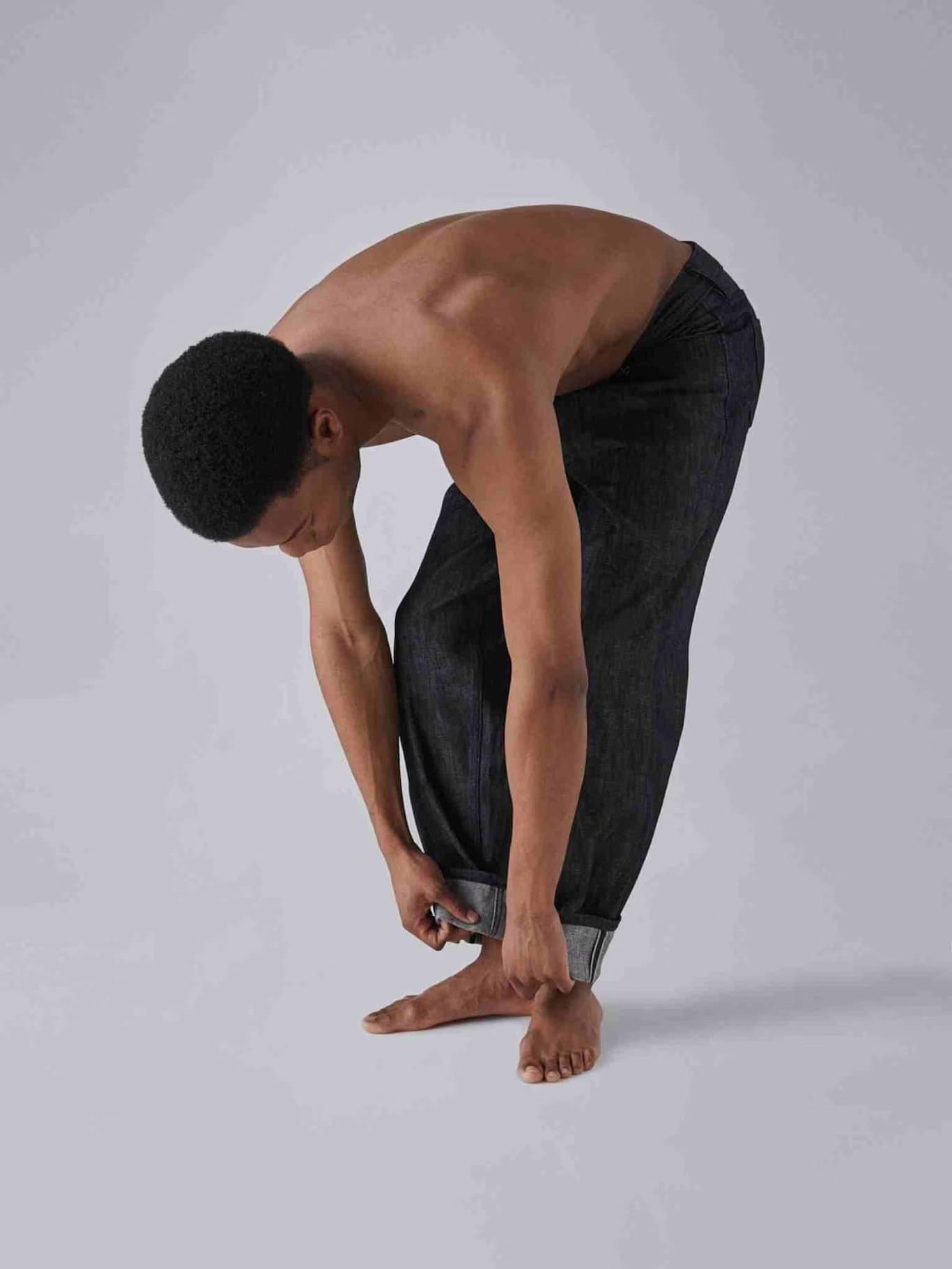
6. Nudie
For the boyfriend-jeans fans (y’know, you coupled-up folks that can wear voluminous, I-care-not jeans and look so laid-back and happy, you bastards), we present Nudie.
Their ‘dry denim’ is 100% organic, uses recycled fibres, is pesticide-free and involves no hazardous chemicals.
And the style? Androgynous vintage appeal abounds, you’ll feel like you’re in the 60s while wearing the Breezy Brits (£120).
And who doesn’t want to feel like they’re in the ’60s?
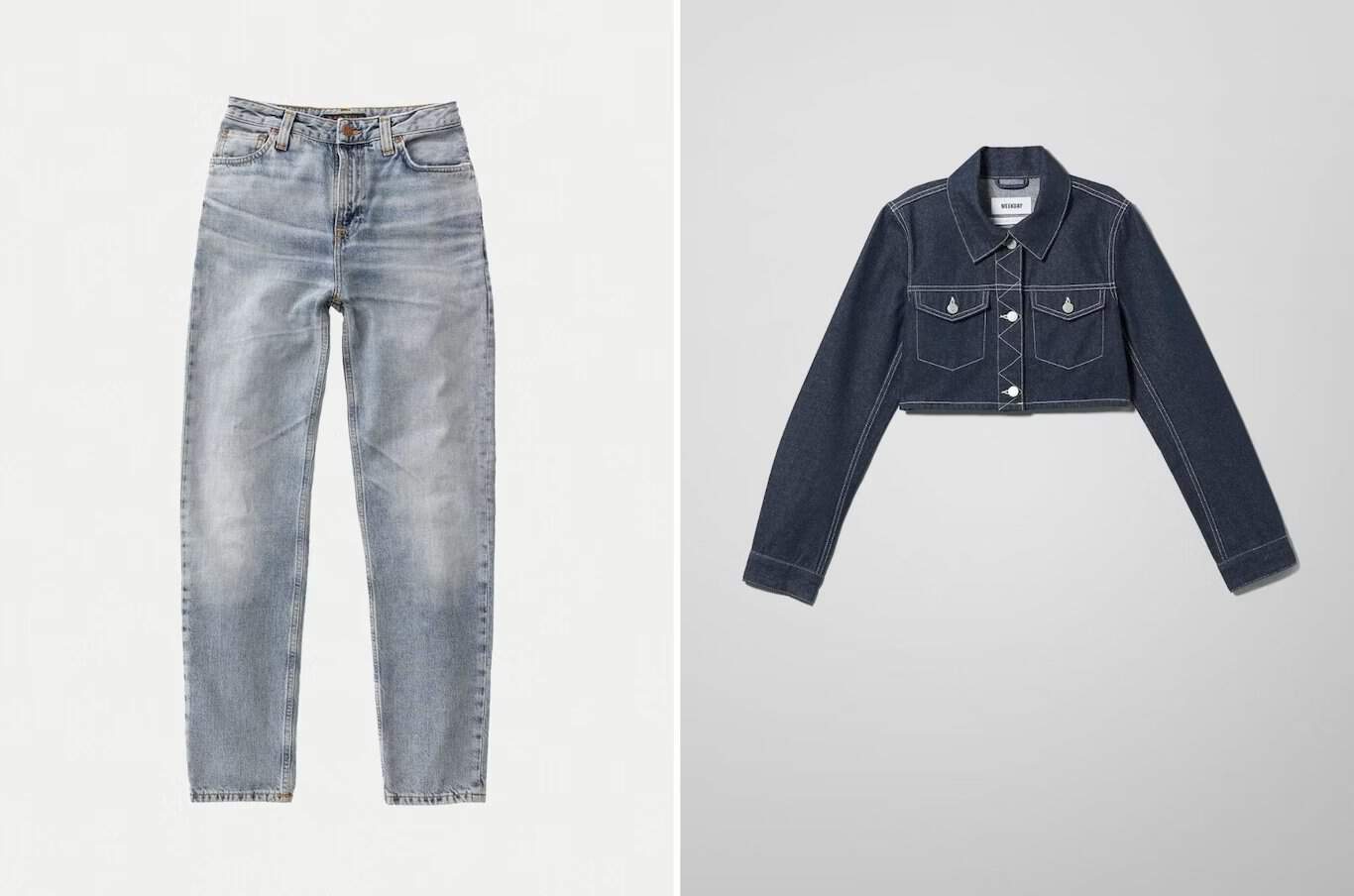
7. Weekday
And if you DO want to keep it high street, take a look at Weekday.
This Swedish brand has launched a 100% recycled denim line.
While the jeans ARE a little MC Hammer parachute pants (and red, too: avoid), there is a tres fashion-forward boiler suit and cute cropped jacket for £90 and £70 respectively.
Seems that the jeans of our dreams are out there. If only dating was so easy, hey.










